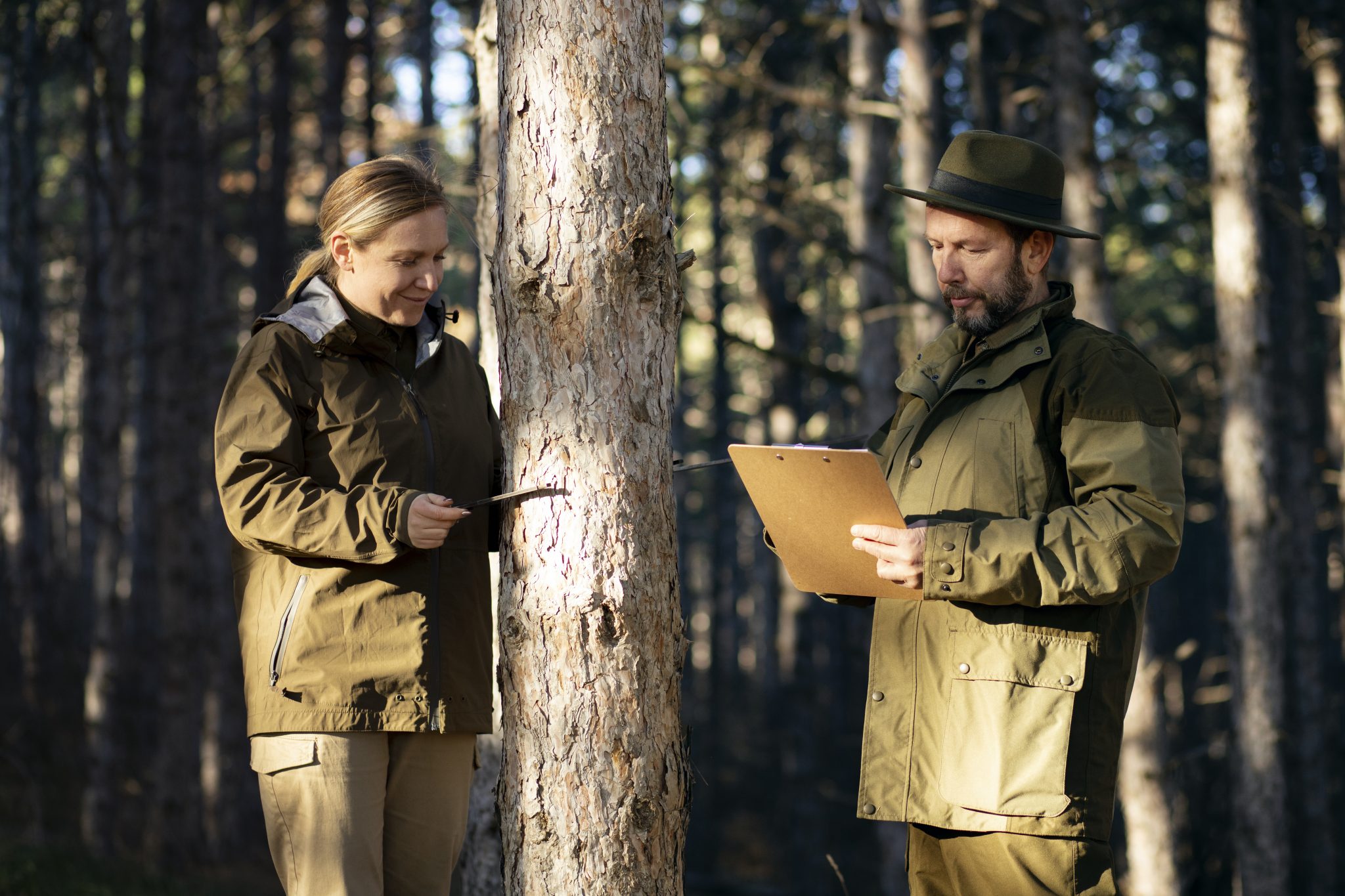
November Newsletter
Dear Wildlife Estates network,
The past few months have been an exciting period for Wildlife Estates Label. Accreditation processes are moving forward, our network of estates is connecting across the continent, and the dedication of numerous members has been recognized and celebrated. Highlights include the National and European Symposium of the Wildlife Estates Label in France, upcoming events and the latest developments on the EU agricultural budget.
Read on for our latest news and updates.
The Wildlife Estates Team
HIGHLIGHT
WESEM training platform linked to Wildlife Estates
The WESEM (Wildlife Estates Sustainable & Ethic Management) training program equips students and professionals in agriculture and forestry with the skills to become advisors in sustainable and ethical land management. It aims to promote sustainable practices, support the Wildlife Estates certification, and foster coexistence between agriculture and nature conservation.
The course consists of four modules: Basic Principles of Ecological Restoration • Forest Ecosystem Restoration • Agricultural Ecosystem Restoration • Nature Conservation Certification and Labelling
The program is supported by a Training Platform, offering learning resources to enhance participants’ skills, and a Mentoring Platform, connecting learners with certified landowners and farmers for guidance, including assistance in applying for the Wildlife Estates Label. The Wesem training program is available free of charge at www.wesem-erasmus.eu
QUICK UPDATES
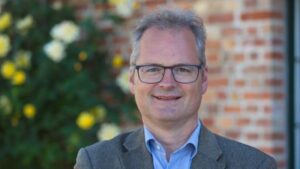
Behind the Scenes: Strategic Talks and Scientific Insights from Paris
On the same day as the National Meeting of the Wildlife Estates Label 2025, Professor Klaus Hackländer was elected chairman of the Scientific Committee. A leading expert in wildlife biology and management, he will guide the committee’s future work on biodiversity and conservation. The session also featured lively discussions on methodology and upcoming challenges.
Read on for more.
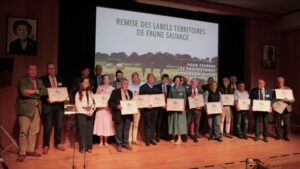
Throwback to the National and European Symposium of the Wildlife Estates
The National and European Symposium of the Wildlife Estates took place in France from 9 to 10 September, organized by the Fondation François Sommer with support from OFB, FNC, and ELO. Over 115 participants joined the debates in Paris, and more than 50 took part in field visits in Seine-et-Marne !
Read on for more.
Wildlife Estates grows
The Wildlife Estates Label keeps expanding, and we are delighted to welcome 60 new estates accredited over the past year. Each new member strengthens our community and showcases the commitment of private landowners to exemplary biodiversity management. With close to 600 accredited estates across Europe, representing over 2 million hectares, the label is more than just a recognition: it is a growing family of landowners sharing knowledge, exchanging best practices, and proving that conservation and socio-economic activities can thrive together.
POLICY
CAP Outlook – Implications for Landowners
ELO has raised concerns over the European Commission’s proposed agricultural budget for 2028–2034 Multiannual Financial Framework. This proposition could reduce funding for farmers and landowners while shifting more responsibilities to national and regional authorities. This may increase bureaucracy, create fragmented rules, and reduce stability for long-term investments in biodiversity, carbon storage, and sustainable land management.
Private landowners, who manage much of Europe’s agricultural and natural landscapes, play a key role in achieving the Green Deal and biodiversity objectives. ELO calls on the co-legislators to ensure stable, well-funded support, consistent rules, and coherent policies that enable landowners to continue their crucial work in conservation and sustainable land management, and will continue engaging with EU institutions to safeguard predictable funding across Europe.
Unlocking Nature Credits: A Landowner-Centred Approach
Nature credits are emerging as a voluntary tool to reward land-based ecosystem services like biodiversity, water retention, and pollination. The EU Commission’s Roadmap on Nature Credits is a first step, but much remains to be done. Linking nature and finance could boost environmental resilience and support sustainable land management. Success will require a system that is practical, transparent, and outcome-focused, ensuring high integrity without the burden of excessive complexity that could slow progress or disconnect policy from on-the-ground action.
The Wildlife Estates (WE) Label, developed by ELO, provides a proven framework to assess, monitor, and certify biodiversity practices on private land. It aligns voluntary conservation with broader ecological goals and, by recognizing exemplary land management, enhances credibility while delivering reputational and economic value to landowners. It also lays a solid foundation for future participation in biodiversity credit or funding schemes. Read the Position Paper. Contact : delphine.dupeux@elo.org

ELO is collecting input from 1,000 landowners across France, Germany, Greece, Italy, Latvia, Norway, Poland, Romania, Slovakia, Slovenia, Spain and Sweden as part of CoCo (Cocreating Coexistence), an EU-funded research initiative promoting harmony between wildlife and livestock across Europe’s diverse landscapes.
Your experience matters. By taking this important survey, you will help shape tools and policies that keep pastoralism both viable and wildlife-friendly across shared European landscapes. Contact : delphine.dupeux@elo.org.
FUTURE EVENTS
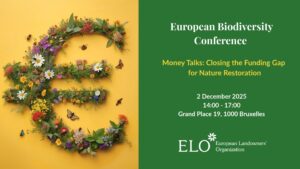
Biodiversity – Money Talks: Closing the Funding Gap for Nature Restoration
📅 2 December – 14:00 to 17:00
📍 Grand Pace 19, Bruxelles
🔗 Register here
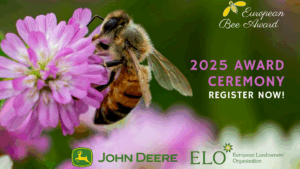
2025 European Bee Award Ceremony
📅 2 December – 19:00 to 20:30
📍European Parliament, Brussels
🔗Register here
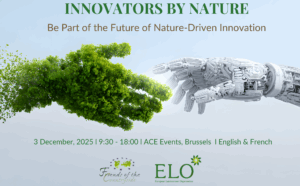
Innovators by Nature – Be Part of the Future of Nature-Driven Innovation
📅 3 December – 9:30 to 18:00
📍 ACE Events, Brussels
🔗 Register here in English & French
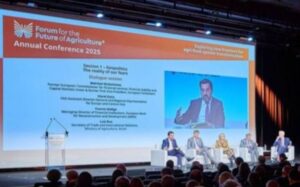
2026 Forum for the Future of Agriculture
📅 14 April – 9:00 to 17:00
📍 The Square, Brussels, Belgium
🔗 Registrations will open soon
PAST EVENTS
Reforming Future for Rural Europe conference – From Ethical Land Management to Agrotourism Inovation
On October 30th in Brussels, the conference “Future for Rural Europe: From Ethical Land Management to Agrotourism Innovation” brought together experts, policymakers, and educators to explore how sustainable practices can shape a responsible future for rural Europe. The event highlighted the WESEM project and the Wildlife Estates Label, showcasing practical tools, educational resources, and inspiring examples of biodiversity-friendly land management. Participants exchanged ideas, experiences, and strategies to foster cross-sector collaboration and involve younger generations in building a sustainable rural landscape. Read on for more.
Reforming the CAP—Economic & Sustainable Transformation
On November 4, the European Landowners’ Organization (ELO) co-organised the event “Reforming the CAP—Economic & Sustainable Transormation” at the European Parliament, hosted by MEPs Herbert Dorfmann and Juan Ignacio Zoido. The discussion focused on the Commission’s MFF proposal for the Common Agricultural Policy (CAP) and its economic and environmental implications. We had the opportunity to hear from Catherine Geslain-Lanéelle, Director for Strategy and Policy Analysis at DG AGRI, who provided valuable insights into the Commission’s strategic vision. The event gathered policymakers, researchers, and key stakeholders to exchange perspectives on shaping a more sustainable and resilient CAP for the years ahead. Read on for more.
